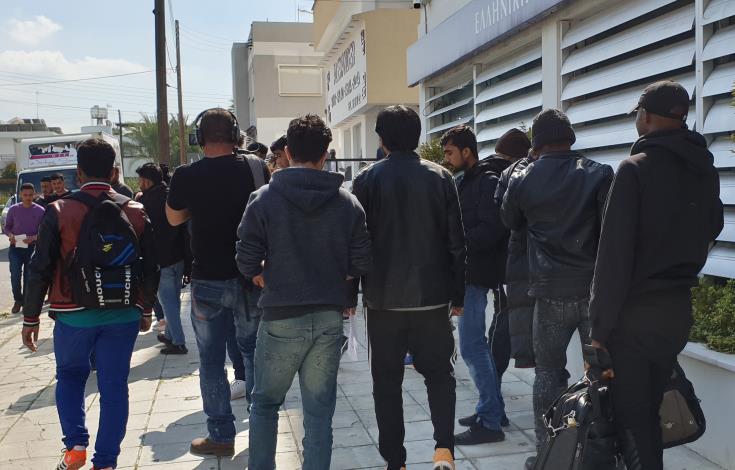Employers fear President Nikos Christodoulides’ decision not to renew a decree that allowed them easier and faster access to asylum seekers will deepen a labour shortage already hurting hospitality.
Earlier this week, President Christodoulides told the Federation of Employers and Industrialists (OEB) that the government will not renew the Interior Ministry decree.
The decree, allowing employers to hire asylum seekers who have been on the island for a month instead of nine as decreed by law, ends on Sunday.
It was initially issued by former minister Nicos Nouris in February, valid until 1 August, and extended by incumbent Constantinos Ioannou until 1 October.
From Sunday, employers wanting to hire asylum seekers will only have access to those on the island for at least nine months.
Christodoulides told employers that the decision is part of the government’s roadmap to making the island unattractive to asylum seekers.
Acknowledging that the labour shortage is threatening businesses, Christodoulides promised employers that the government would speed up hiring processes from third countries.
“Businesses will be receiving a reply to their requests within one month,” President Christodoulides was quoted as saying.
In comments to the Financial Mirror, Lena Panayiotou, head of OEB’s Industrial Relations & Social Policy Department, said that businesses desperately need employees in hotels, catering and agriculture.
“We were aware that the decree would end on Sunday and would probably not have been renewed.
“Knowledge of this, however, does not help businesses as there is a real labour shortage that needs to be addressed,” said Panayiotou.
She explained that asylum seekers have been covering needs in unattractive sectors for Cypriots or EU citizens.
“We ask that the government reconsiders its decision, pushing the end of the decree at least until the end of the year, allowing us time to prepare for the new tourist season ahead.
“These people have offered relief to businesses, especially following the restructuring of the labour market after COVID and the increase of costs following a hike in energy prices in the aftermath of the war in Ukraine.
“Furthermore, these people were living off wages earned by being productive instead of living off allowances handed out by the state,” said Panayiotou.
According to hotel industry sources, some 3,000 asylum seekers are currently employed, many of whom have not been in Cyprus for more than nine months.
According to the law, asylum seekers can be employed in agriculture, fisheries, animal shelters and hotels, bakeries, and dairy factories.
They can also be employed in waste management, at petrol stations and car washes, car body repair shops, cleaning companies, delivery drivers, in hotels as kitchen assistants, and homes and offices.










